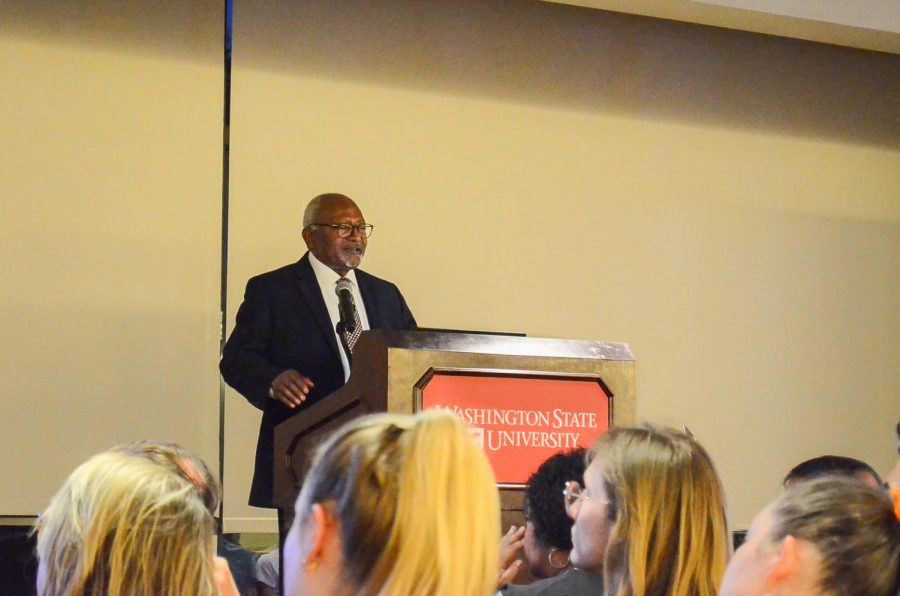Professor recognized for activism
William Julius Wilson Award honors people who promote diversity
Dr. Robert Bullard speaks after being awarded the William Julius Wilson Award for the Advancement of Social Justice on Wednesday in the CUB.
September 26, 2019
Robert Bullard, known as the “father of environmental justice,” was presented with the William Julius Wilson Award on Wednesday night, in recognition of significant contributions to social policy and the promotion of diversity.
WSU created the award in 2009 to honor individuals who promote social inclusiveness and diversity in social policies and strive to reduce joblessness.
Bullard said he wanted to bring attention to how the idea of environmental justice has changed over the years and his part in leading the movement.
He said he has been asked many times what environmental justice is and informs people that it is not only referring to the outside world, but what goes on inside people’s homes as well.
“I want you to understand that no matter what field you are in, whether it’s journalism, hydrology, sociology or anything else, there is a role you can play in environmental justice,” he said.
The environmental justice movement was born in rural Warren County in North Carolina, where a hazardous waste facility was placed near public schools in a predominantly black neighborhood, Bullard said.
“Elementary school kids and high school kids were marching in protest of this landfill that was so close to their school. It sparked a movement and made people realize that this is environmental racism.” he said. “Kids stayed out of school and there were over 500 people arrested,”
He said in 1990, he was inspired to write a book about this incident and get the information out there.
Bullard said after his book, called “Dumping in Dixie” was published, he received nasty letters from publishers asking him why he was writing about environmental racism and environmental justice.
Todd Butler, associate dean for faculty, said Bullard edited of several books that are now standard texts in the field of sociology.
Bullard does not just win awards, Butler said, he helps change the institutions that recognize him.
“I’ve written 18 books that cover a range of topics. The central glue that runs through all of them is fairness, equity and justice,” Butler said. “Whether that’s referring to housing, transportation or anything else.”
Bullard said after Warren County and “Dumping Dixie” happened, there was a symposium expecting about 100 scientists. However, it was delayed for a year and there were over 1000 attendees.
“If we want to build a movement, we must come together and unpack the bags that we have. Once we do that, we can open it up to more people,” Bullard said.





















